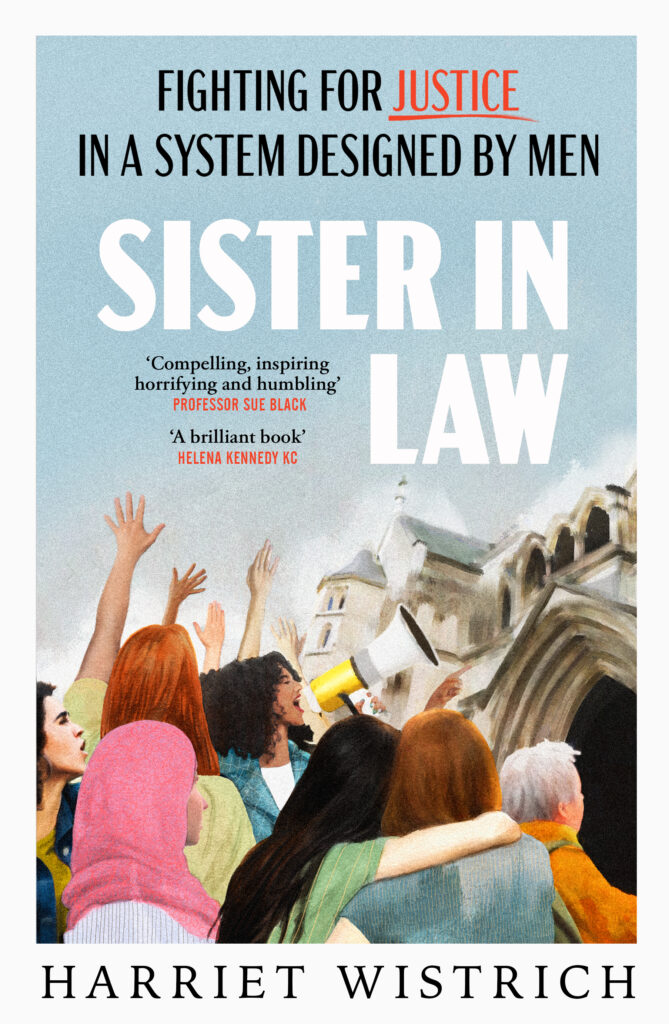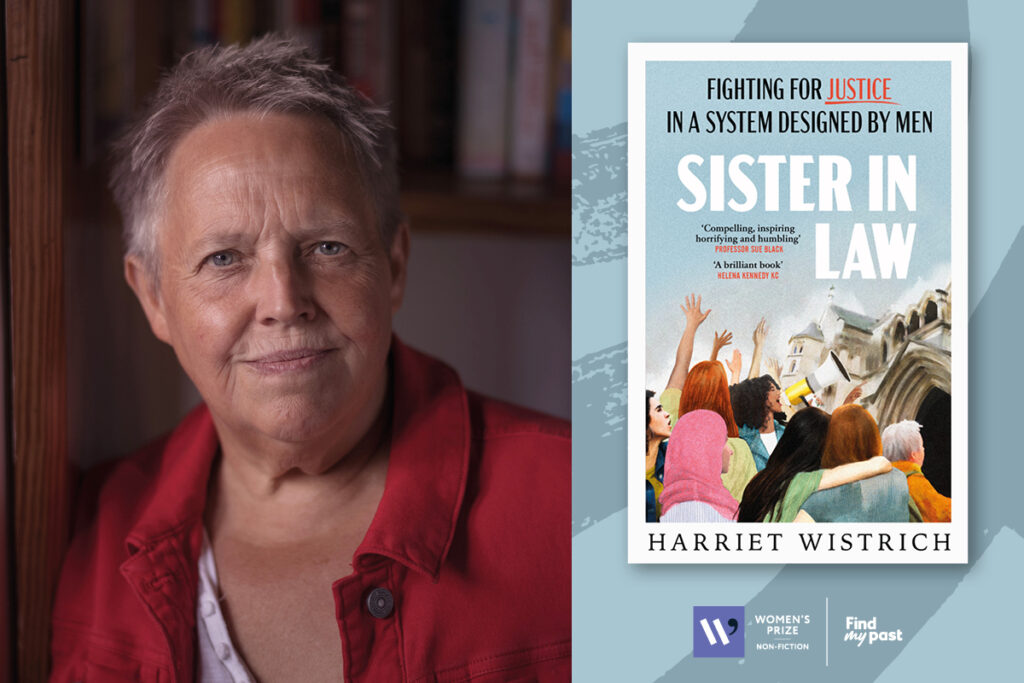In Sister In Law: Fighting for Justice in a System Designed by Men solicitor and founder and director of the Centre for Women’s Justice, Harriet Wistrich, tells the shocking stories of some of those who have come to her for assistance and shines a feminist light on the landscape of arcane laws and byzantine systems, skewed towards male behaviour and responses.
Longlisted for the 2025 Women’s Prize for Non-Fiction, judge Dr Leah Broad describes the book as: ‘Both a harrowing and hopeful account of Wistrich’s tenacious battles to fight injustice. It powerfully conveys how misogyny is endemic in our legal system.
To find out more about the book we spoke to Harriet about her writing, research and current reads.
How would you describe your book to a new reader?
An accessible and gripping account of a number of high profile legal battles fought by campaigning lawyer, Harriet Wistrich, as she journeys with her clients through challenging, complex and protracted legal battles for justice. From the fight for police accountability by two victims of the serial rapist taxi driver John Worboys, to the successful appeal of her murder conviction by Sally Challen and the collective battle by women deceived into relationships by undercover cops, this book tells the stories of how justice was won. A book that details institutional misogyny and how women who are victims of abuse are failed at every stage of the criminal justice process. It also provides inspiration and hope through the stories of how giant barriers to justice can be overcome.
Did you have any revelation moments when writing your book? When the narrative and your objectives all fell into place?
Not so much a moment but the process of writing this book helped crystalise my understanding of the combination of factors that can assist success in any legal fight for justice.
What is the one thing you’d like a reader to take away from reading your book?
The law need not be dry and inaccessible, it can be malleable, fascinating and, if approached creatively, a force for change.
How did you go about researching your book? What resources did you find the most helpful?
My memory, contemporaneous notes and the legal case papers that the solicitor firm I worked with has fortunately held in its archives. I spoke to and checked content with the former clients whose cases I documented. In addition I searched on line for news stories, legal judgments and other relevant contextual material.
Which female non-fiction author would you say has impacted your work the most?
Helena Kennedy’s Eve was Framed was a groundbreaking account of how the criminal justice system fails women.
What is the best piece of writing advice you have ever received?
Just get on with it, get it on the page and then edit.
Is there a non-fiction book you recommend all the time? If so, what is it and why do you recommend it?
Right-Wing Women by Andrea Dworkin – a must read book for anyone interested in women’s liberation and the barriers to change, as relevant today as it was at the time it was written.
What are you currently reading?
Secrets and Silence: Uncovering the Legacy of the Cleveland Child Sexual Abuse Case by Beatrix Campbell









